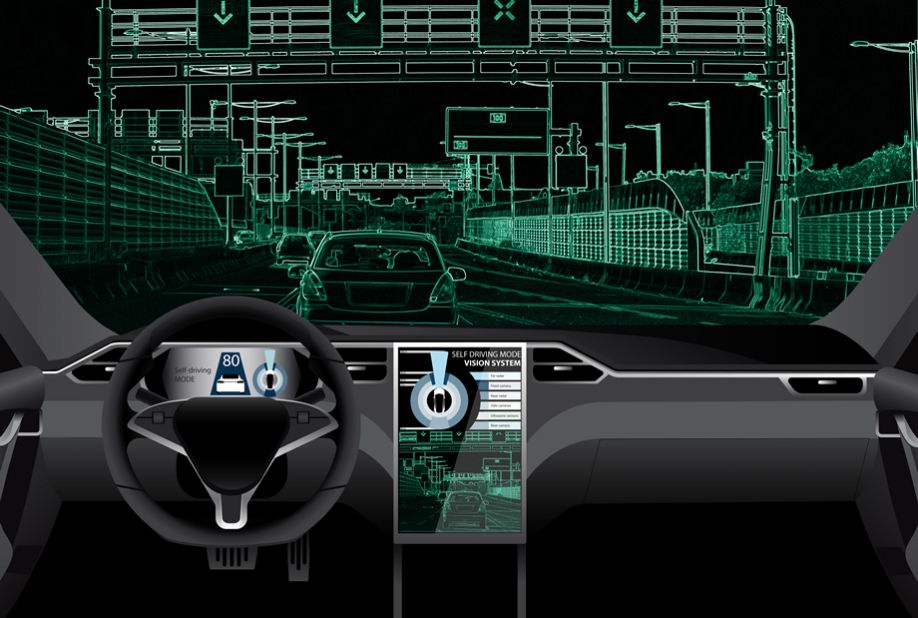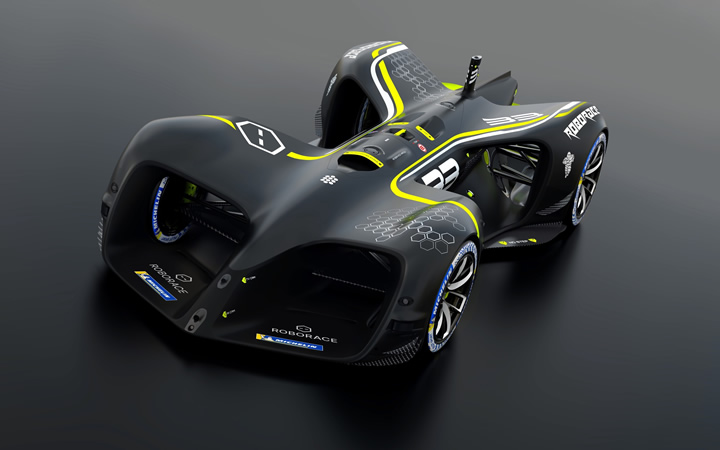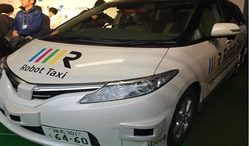How Robotics and IoT Are Changing the Trucking Industry
Trucking is ripe for disruption, and technology like Internet of Things (IoT) devices and robotics are leading the charge.
Kodiak Robotics Releases Safety Report on Self-Driving Trucking
Self-driving vehicles have spent their fair share of time in the spotlight recently. Most conversations about the technology revolve around cars and public transportation, but that's not its only application. Driverless trucks are showing promise.
Carnegie Mellon University To Join Roborace Autonomous Racing Championship
In the 2019 development season, Season Alpha, Roborace hosted six events throughout the UK and Europe, providing a variety of challenges in the areas of performance, object avoidance, localization and precision.
How the Automotive Technology Showcased at CES Could Impact Vehicle Manufacturing
Which automakers are best poised to succeed in the future of mobility? That's the question prompting the appearance of many of the world's top automotive manufacturers - including Ford, Honda and BMW - at major technology shows like CES 2020 in Las Vegas.
Don't Look Back: Autonomous Cars Require More Than Just Technology
Unlike memory folks in the audience who like to keep their secrets secret, Hyundai/Kia and Bzeih have laid out their roadmap for the next decade with some autonomous systems by 2020 and mass production by 2022.
Inspur's Secrets Unveiled Behind Baidu's Driverless Car Technology
As the pioneer in artificial intelligence field, Baidu chose the Inspur NF5568M4 heterogeneous supercomputing server in its unmanned auto road condition model training.
Equipped with Velodyne LiDAR'S HDL-32E 3D Sensor, Hi-Tech Robotic Systemz's Novus Drive Debuts as India's First Driverless Shuttle
Fourteen-Seat Autonomous Vehicle Ferries Passengers During 2016 Auto Expo Motor Show in Delhi
Toyota's U.S. Robotics Boss Promises Results Within 5 Years
Yuri Kageyama for News Factor: The U.S. robotics expert tapped to head Toyota's Silicon Valley research company says the $1 billion investment by the giant Japanese automaker will start showing results within five years.
Gill Pratt [pictured above] told reporters that the Toyota Research Institute is also looking ahead into the distant future when there will be cars that anyone, including children and the elderly, can ride in on their own, as well as robots that help out in homes.
Pratt, a former program manager at the U.S. military's Defense Advanced Research Projects Agency, joined Toyota Motor Corp. first as a technical adviser when it set up its artificial intelligence research effort at Stanford University and MIT.
He said safety features will be the first types of AI applications to appear in Toyota vehicles. Such features are already offered on some models now being sold, such as sensors that help cars brake or warn drivers before a possible crash, and cars that drive themselves automatically into parking spaces or on certain roads.
"I expect something to come out during those five years," Pratt told reporters recently at Toyota's Tokyo office of the timeframe seen for the investment. Cont'd...
AutoSens clearly ahead as most comprehensive ADAS conference
Europes most important ADAS conference, AutoSens, (http://auto-sens.com) has confirmed an impressive speaker line-up for this years event, which will take place in September in Belgium, with big names from OEM, Tier 1 and Tier 2 automotive suppliers.
Segmenting the Autonomous Vehicle Value Chain: A Look at Who is in the "Driverless" Seat
Vision Systems Intelligence (VSI) releases infographic with a complete examination of all the major players in the autonomous vehicle value chain -- from tech giants to robotics start-ups.
Driverless Taxi Experiment to Start in Japan
By JUN HONGO for The Wall Street Journal: Japan’s cabinet office, Kanagawa prefecture and Robot Taxi Inc. on Thursday said they will start experimenting with unmanned taxi service beginning in 2016. The service will be offered for approximately 50 people in Kanagawa prefecture, just south of Tokyo, with the auto-driving car carrying them from their homes to local grocery stores.
According to the project organizers, the cabs will drive a distance of about three kilometers (two miles), and part of the course will be on major avenues in the city. Crew members will be aboard the car during the experiment in case there is a need to avoid accidents.
Robot Taxi Inc., a joint venture between mobile Internet company DeNA Co. and vehicle technology developer ZMP Inc., is aiming to commercialize its driverless transportation service by 2020. The company says it will seek to offer unmanned cabs to users including travelers from overseas and locals in areas where buses and trains are not available. Cont'd...
Toyota hires robotics expert for AI push
Richard Waters for FT.com: Toyota has hired the top robotics expert from the US defence department’s research arm and promised $50m in extra funding for artificial intelligence research, as it steps up the race between the world’s biggest carmakers to pioneer new forms of computer-assisted driving.
However, the Japanese carmaker maintained on Friday that completely driverless cars were still years away, and that AI and robotics would have a more complex effect on the relationship between humans and their vehicles than Google’s experiments with “robot cars” suggest.
Gill Pratt, who stepped down recently from the Defense Advanced Research Projects Agency (Darpa), will move to Silicon Valley to head Toyota’s robotics efforts, the company said. Darpa played a key role in stimulating interest in driverless cars with a competition in 2005 — the leader of the winning entry, Sebastian Thrun, who was then a professor at Stanford University, went on to found Google’s driverless car programme. Cont'd...
Thinking Ahead: An interview with "The Mobility Revolution" author Lukas Neckermann
Once we remove the human-machine interface - in other words, take away pedals and the steering wheel - we shift liability to an outside-operator, much like with driverless public transport systems.
Records 1 to 13 of 13
Featured Product

FAULHABER MICROMO - Game changer in logistics
Faster, more efficient, more sustainable - due to global competition in industry combined with booming online trade, transport structures in intralogistics are facing new challenges. The industries' answer: Automation. From storage to shipping, key work steps are being taken over by intelligent logistics robots, such as automatic storage and retrieval machines and driverless transport systems. To work efficiently and reliably around the clock, these robots need flexible and particularly compact drive solutions.

.jpg)






.jpg)
